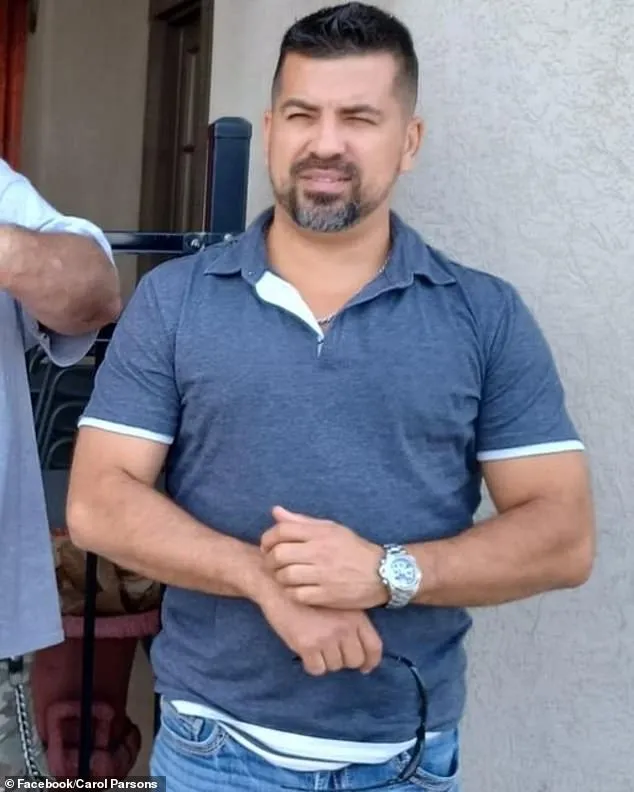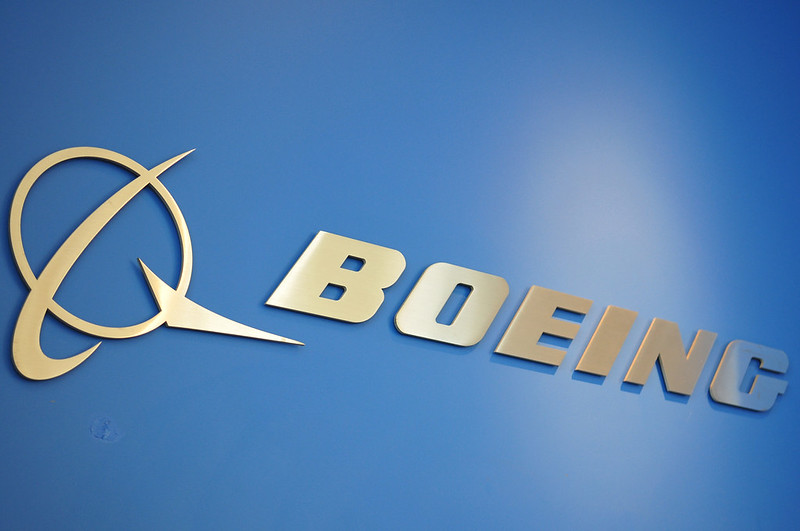Joshua Dean had earlier stated that he was fired from Spirit AeroSystems, where he was employed as a quality auditor, in October 2022 for bringing up issues with the supplier’s Wichita, Kansas, plant’s standards.
Spirit manufactured the door plug for the Boeing that unintentionally burst out midair during a January Alaska Airlines flight.
According to his family’s social media posts, Dean passed away in the hospital on Tuesday after suffering an unanticipated illness. He was let away from Spirit AeroSystems in April of 2023.
Earlier this year, Dean spoke with NPR about being fired. “I believe they were conveying a message to anyone else.” We’ll quiet you if you get too loud,” he declared.
Boeing’s stock price has fallen by over 10% to $173.86 in the past six months due to the emergence of new safety issues.
Dean’s aunt Carol Parsons and other family members confirmed his death in postings on Facebook and received by MailOnline. She also confirmed his death in a statement to The Seattle Times.

Parsons told the newspaper that Dean had been to a hospital in his hometown of Wichita, Kansas, due to respiratory difficulties. While he was there, Dean got pneumonia and MRSA, and he needed to be intubated.
“I am grateful for my family and friends’ prayers for this young man,” she wrote in a Facebook post. He died early yesterday morning, and his absence will be deeply mourned. Josh, we will always love you.
His former employer, Spirit AeroSystems, issued a statement wishing Dean’s family well.
“Josh Dean’s family is in our thoughts,” according to spokesperson Joe Buccino. “This unexpected loss is devastating news for his loved ones and us here.” Boeing has continuously denied the claims of Dean and other sources that the company deliberately ignored safety signals.
Dean’s mother posted on Facebook that as recently as Monday, he was aware and communicating with medical personnel. A doctor at the time said he had a “50/50 chance of living,” she wrote. “Josh has not been on any sedation or pain medication and is extremely depressed, scared, and sleeping a lot.”
In addition, “he is also not responding as much as he was a few days ago.” In his final days, Dean was dependent on an ECMO machine for breathing. His mother said, “The physician inquired if he wanted the machine turned off and he wouldn’t respond.”
“I told the doctor he doesn’t know what he wants, but I’m confident he wants to live. She went on to add that her kid underwent a procedure to investigate the damage done to his lungs by the pneumonia, which he overcame.
“I am grateful for the prayers of my family and friends for this young man,” Parsons posted on Facebook on Wednesday. His departure occurred yesterday morning, and his absence will be deeply felt.
“We shall always love you, Josh.” Justin, the brother of Dean, passed away in January at the age of 26.
Dean claimed in January to The Wall Street Journal that he was fired for pointing out that his employer had disputed that holes had been inadvertently bored in a fuselage.
“It is known at Spirit that if you make too much noise and cause too much disturbance, you will be moved. It doesn’t mean you should completely reject anything, but they don’t want you to locate everything and write it up,” he explained.
Another whistleblower from Boeing, John Barnett, committed suicide in March while the company was being sued in court.
His pals denied this, saying he had previously told them that “if anything happens to me, it’s not suicide.” He died from a self-inflicted gunshot wound.
Brian Knowles, the same lawyer who defended Dean and Barnett, declined to comment in a brief statement to The Seattle Times on his clients’ untimely deaths. We need whistleblowers. They reveal corruption and wrongdoing for the benefit of society.
“It takes a lot of courage to stand up,” Knowles stated on the website. Dean remembered a pizza party held at the Wichita factory to commemorate a drop in the number of reported problems.
Asserting that he had assured them that “it’s not suicide if something happens to me.” Brian Knowles, the same lawyer who defended Dean and Barnett, declined to comment in a brief statement to The Seattle Times on his clients’ untimely deaths. We need whistleblowers.

They reveal corruption and wrongdoing for the benefit of society. “It takes a lot of courage to stand up,” Knowles stated on the website. Dean referred to a pizza party held in the Wichita facility to commemorate a drop in the number of reported faults. He noted that the discussion quickly shifted to the idea that the gains were the only result of underreporting issues.
“We are holding a pizza celebration since we are reducing defects. But we aren’t reducing defects. We just ain’t reporting them, you know what I mean?,” Dean said in his NPR interview.
He continued by telling the station that he had previously worked at the same Wichita facility as his father and grandfather, and that he quickly lost interest in the workplace. “I am not saying they don’t want you to go out there and evaluate a work. Yes, they do. But if you make too much trouble, you will get the Josh treatment. You will get what happened to me.”
Dean’s charges are a part of a shareholder lawsuit that was filed against Spirit in December on the grounds that the company neglected to disclose defects.
Spirit firmly disputes the claims made in the complaint, according to the Journal, and is “focused on the quality of each aircraft that leaves our facilities.”
The risk of fatigue or tiny breaking in the material, which might cause it to fail, increased when excessive force was applied to join panels on the 787 production line, according to a statement made by Boeing engineer Sam Salehpour last month. Officials from Boeing explained the assembly process for different parts of a fuselage.
Steve Chisholm, vice president of structural engineering at Boeing, provided an explanation. The average 787 performs 600 flights annually, he continued.
The company declared the present fleet of aircraft to be safe. Chisholm claims that 671 Dreamliners have passed thorough 6-year inspections, and 8 have undergone 12-year inspections, both of which have revealed no signs of fatigue in the composite skins.
Officials stated that Boeing has issued inspection instructions for the metallic components where cracks have been found, which include a section above the point where the wings connect to the fuselage.
Since its launch in 2011, the two-aisle 787 Dreamliner has been used extensively on foreign flights. Because the plane is lighter because to the composite material, its fuel efficiency is increased.
The airplane was momentarily grounded due to a sequence of battery fires. Concerns concerning wider-than-Boeing standards gaps between fuselage panels, the use of approved titanium parts from an Italian source, and pressure bulkhead flaws have occasionally resulted in the suspension of aircraft deliveries.
Before a 787 can be delivered to an airline customer, it must first undergo inspection and approval by the Federal Aviation Administration once it leaves the assembly line.
The whistleblower, Salehpour, alleges that Boeing moved him to work on the older widebody 777 after he voiced safety concerns about the 787. Boeing disputes his allegation that he saw workers leaping on fuselage panels to align them, as reported by the Seattle Times.
The New York Times reports that the FAA is looking into Salehpour’s allegations. The FAA said the it looks into all safety issues, but it did not comment on Salehpour specifically.
Boeing declared that it has “complete confidence” in both planes. Salehpour is the most recent of several Boeing whistleblowers to come out, usually with accusations of being targeted for raising safety concerns.
The business declared that it supports employees in speaking out about challenges.
Employee reports have “exploded,” according to Lisa Fahl, vice president of engineering for Boeing airplane programs, with more reports filed in January and February than in all of 2023, “which is what we want.”
Please SHARE this story with Family and Friends and let us know what you think in comments!
Source: dailypositiveinfo.com


